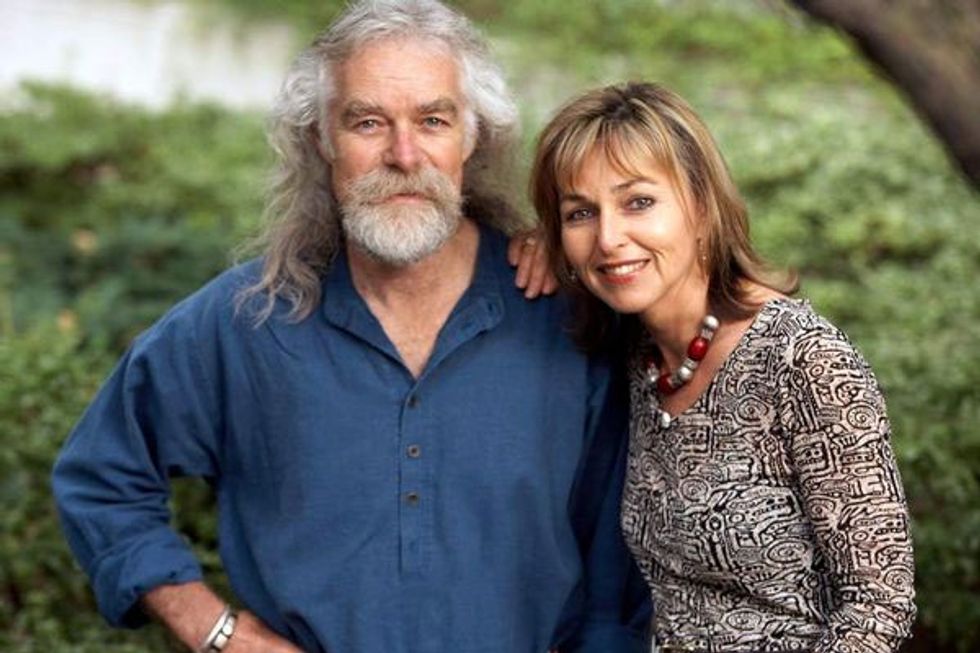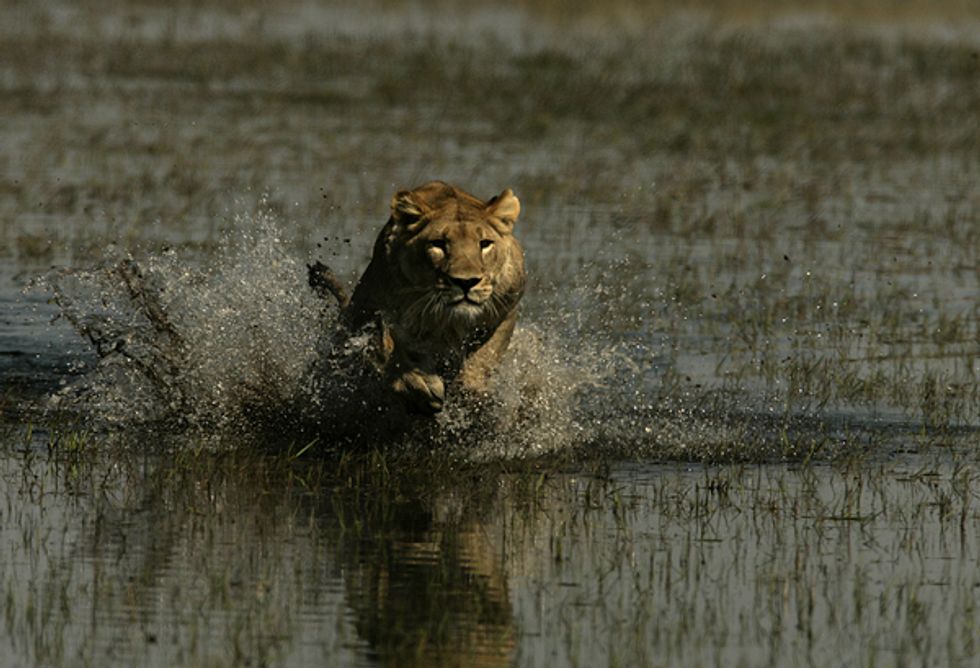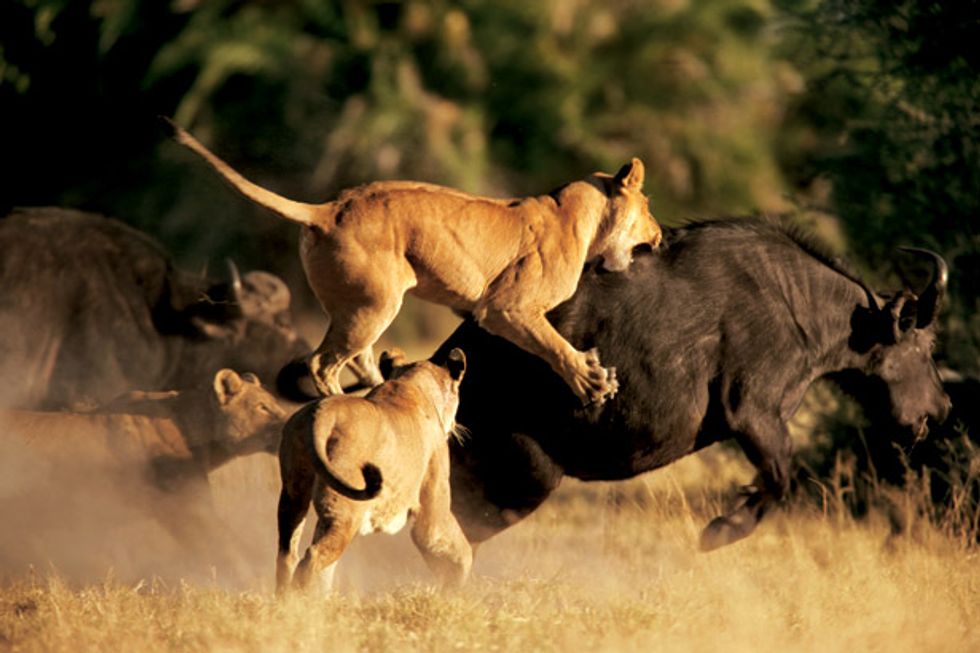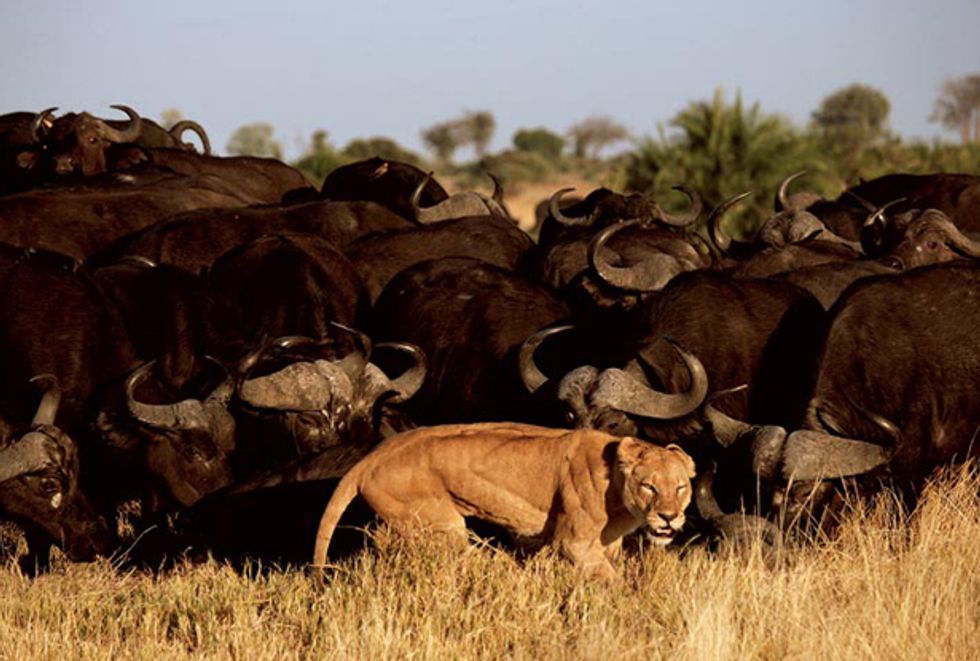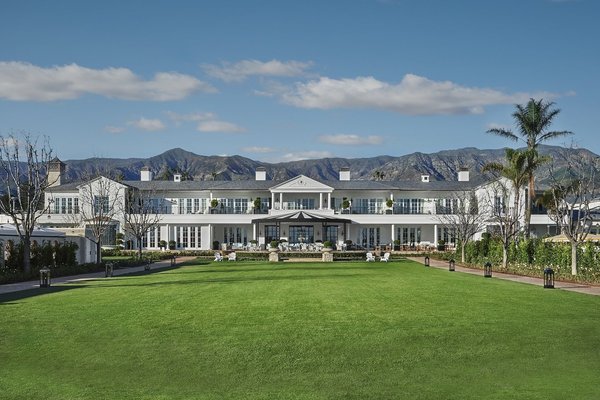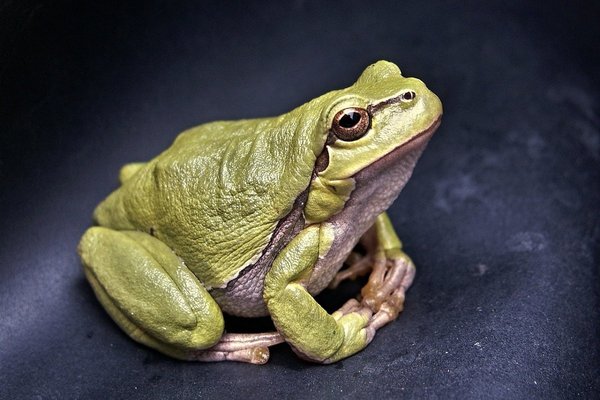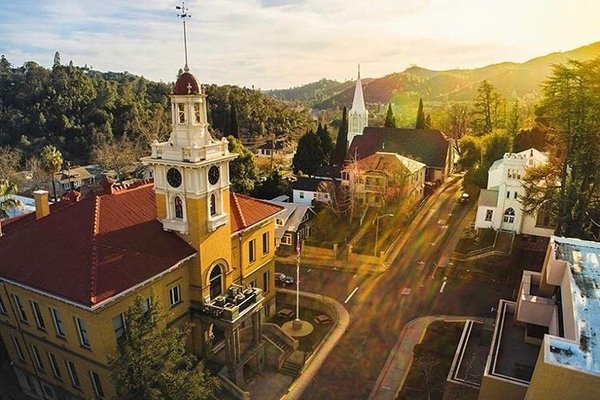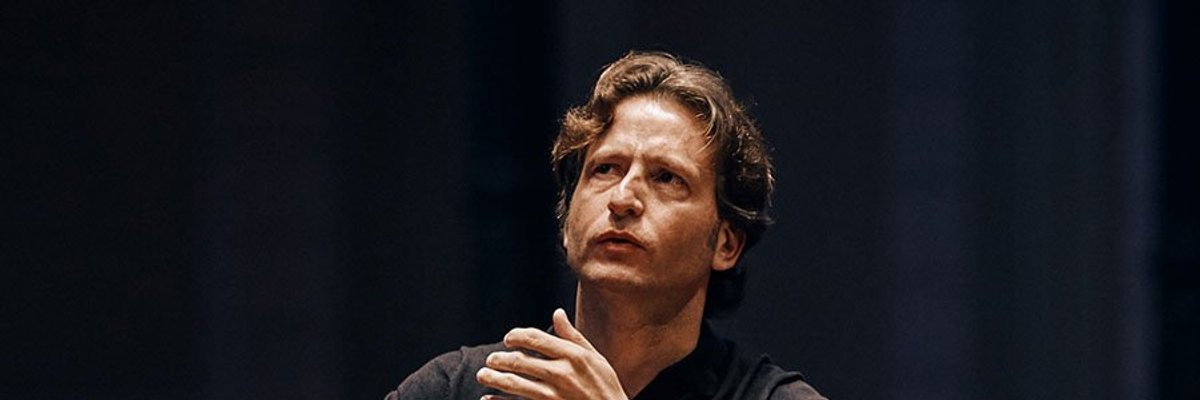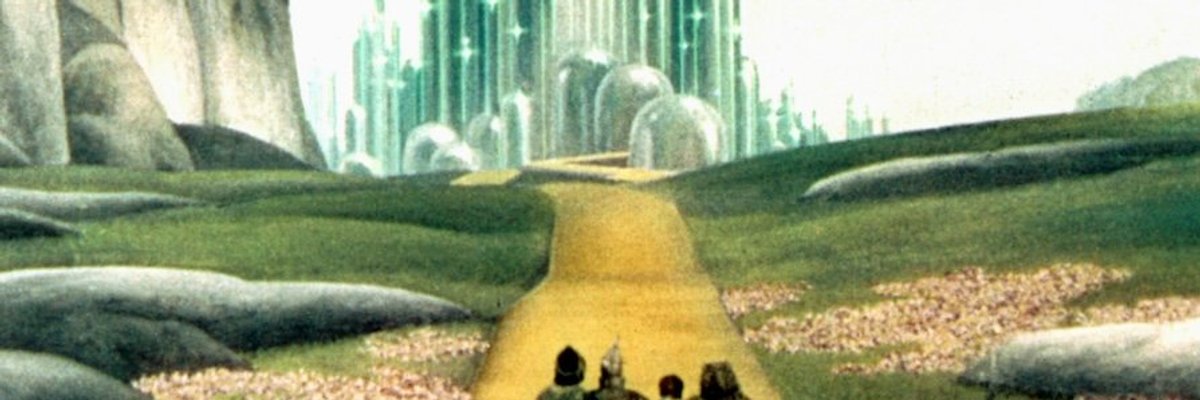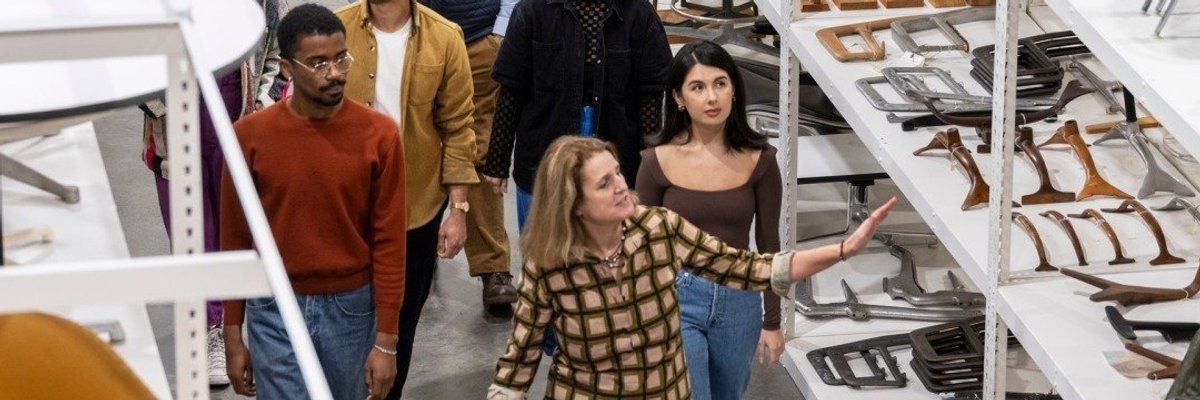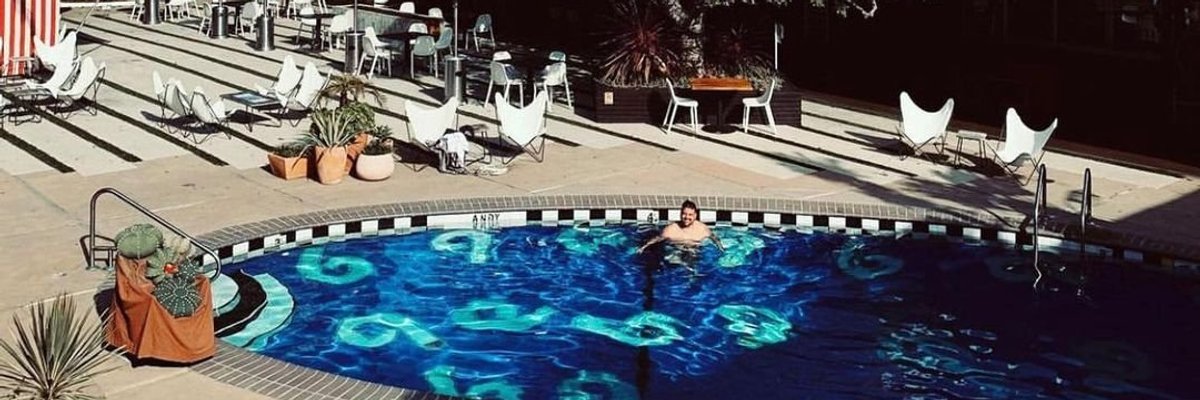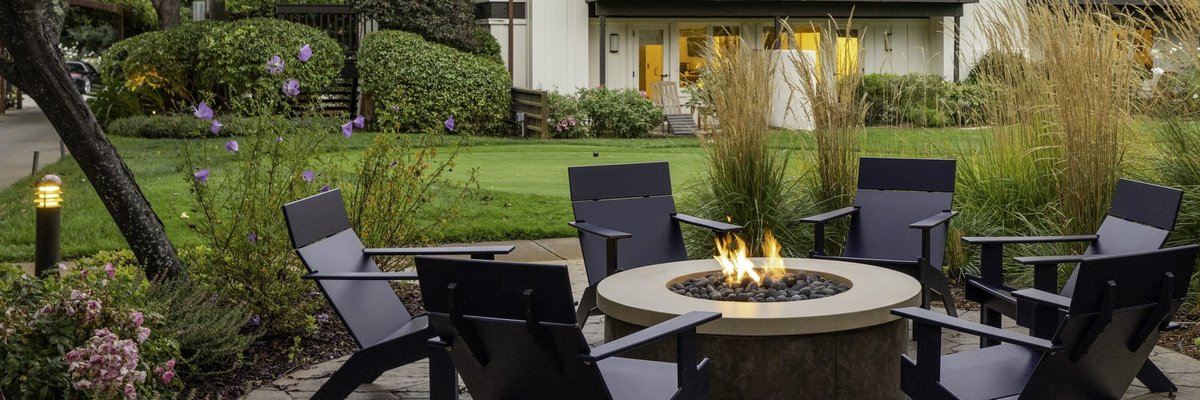It has taken roughly half a century for the world’s lion population to dwindle from 450,000 to 20,000, an alarming statistic suggesting the king of beasts might soon join the ranks of the officially endangered. But rather than decry this preventable fate from a distance, National Geographic documentarians Dereck and Beverly Joubert spent the past seven years on Botswana's Duba Island, filming the lions in their natural habitat and observing the obstacles to their survival.
The fruit of their labor is The Last Lions, which opened Friday at the Landmark Embarcadero, a brilliantly edited drama recounting a tumultuous two years in the life of a lioness they called Ma di Tau (“Mother of Lions”). Determined to protect her three cubs against all natural enemies, including rival prides and the buffalo roaming the country’s treacherous Okavango Delta, Ma is at once overmatched but undeterred.
Equally committed were the South African-born Jouberts, onetime high-school sweethearts for whom Lions – their 22nd film in nearly three decades – represented something more urgent than a beautifully photographed snapshot of nature at its wildest.
Living in tents far removed from civilization, waking up at four each morning to track their embattled subjects, the husband-and-wife team hope their latest documentary, narrated by friend Jeremy Irons, will alert the world to the lions’ plight, and help reverse their rapid decline.
To that end, the Jouberts created Lions not as a TV documentary or an IMAX spectacle, but as a theatrical release. "We've done TV many times before, and it's a different kind of storytelling," Dereck says. "I think IMAX is, ironically, very similar to TV – it's an extravaganza of visual eye candy. But [Lions] is a dramatic piece, and we wanted to make this on as big a canvas as possible.
"Getting this story into theaters was the goal from the very beginning. We spent just over two years filming and another couple years editing. The pacing of the material is very different from what you'd see on television. And the experience of living in this place can't be overstated. That's how we were able to capture what you see in the film, which is natural drama as it's unfolding."
The Jouberts acknowledge that life on Duba Island isn't for the faint of heart. Whether wading through crocodile-infested waters to angle a perfect shot or taking pains to collect firewood without stepping on snakes or scorpions, they must remain alert at all times, even in the plains where, as Dereck puts it, they know "every tree, every bush."
"A lion could take us at any time," says Beverly. "We can't just walk around at night. In our little makeshift bathroom, we recently had a snake circling the tin bathtub as I was bathing, and those are the sorts of things we interact with all the time. The key is to project calm, to lose your fear.
"But we also find that a lot of our issues are mechanical situations going wrong. We were flying not so long ago with a pilot whose brakes failed, and as we were approaching a pretty short runway, we had three or four giraffes moving toward us. We didn't want to hit those giraffes, so the pilot turned very sharply, but in doing so he overturned the plane."
The Jouberts chose Duba Island as their base precisely because it's one of the rare stretches of the African landscape where there is no human presence, and no hunters to prey on the wildlife. But Dereck acknowledges that hunting remains the most serious threat facing the world's ever-shrinking lion population.
"Of the 20,000 lions left, there are roughly 3,500 to 4,000 male lions left, and safari hunters only target the males," says Dereck. "The hunters are shooting them at a rate of 600 per year, and 550 of those are being shipped to the United States as trophies. Clearly those are not sustainable numbers."
Considering the stunning disappearance of so many animals – a phenomenon they've witnessed from the front lines – do the Jouberts believe the lions stand a fighting chance going forward?
"It is a very rapid decline," Dereck says. "Botswana doesn't allow lion hunting anymore, which is something that's new within the last 10 years. Kenya doesn't allow hunting, and that's something that's been in place for a long time. But still these numbers are troubling.
"We started a foundation called the Big Cats Initiative with National Geographic, and [Lions] is the voice of that in many ways. All the profits from this film are going back into big-cat conservation. We've got about five years to do something really positive about these big-cat populations, so that's where these emergency funds are going. And we are very hopeful, because we've had such an amazing response."
The Last Lions is now playing at the Landmark Embarcadero Cinema. For tickets, click here. A book inspired by Dereck and Beverly Joubert's experiences on Duba Island, billed as a companion piece to the film, is now available via Amazon.



